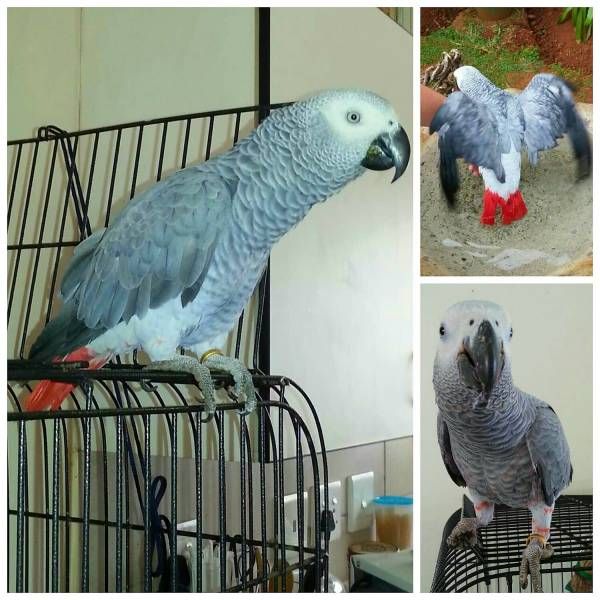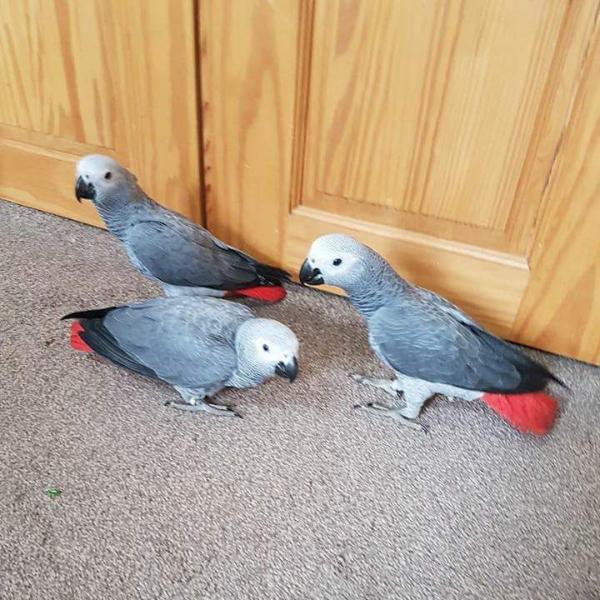Scientific Name : Erythrura Gouldiae
Class : Aves
Kingdom : Chordata
Phylum : 125–140 mm
Temperament
This section will touch on the behavior of your African Grey. We will try to go over everything from body language, behavorial problems, biting, talking and feather picking.
In no way are we experts in the field, but like you live with a Grey and know many others with African Greys. We have spent many hours observing, learning and reading all we can get our hands on to better understand our African Grey Parrot.
If there are subjects that you would like to see included in this section, please Contact Us and we will do our best to add them to this area.
Health
The health of your African Grey Parrot is obviously of paramount importance to everyone in the "flock". As owners, we must be in tune with our African Greys and aware of how they act on a day-to-day basis so we know when things aren't normal. In this section, you will find information and guidelines on things to look for that show your African Grey is healthy and signs of a potential / possible illness in your African Grey. You will also learn how to put together an emergency kit for your bird, and potential household hazards and toxins for your African Grey Parrot.
In the wild, the instinct of a African Grey and other birds is to hide their illness so they appear healthy to predators and their flock. A predator will attack a sick or injured African Grey and the other birds in their flock might drive away a sick African Grey to avoid spreading an illness to the rest of the flock. This natural instinct is still present in our domestic birds and they will often hide symptoms of disease / illness until they are seriously ill. It is up to us to be observant and attentive to our African Grey Parrots so we know when something doesn't seem "quite right".
 English
English Français
Français







